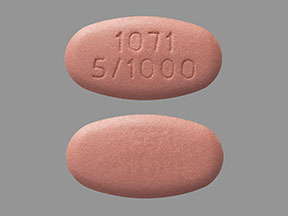
Dapagliflozin Propanediol-metformin ER Coupons & Savings Card – Discount Prices from $950.83
Generic for: Xigduo xr
My prescription
Edit
5-1000MG, Dapagliflozin Propanediol-metformin ER (180 Tablet Extended Release 24 Hours)
Select pharmacy

CVS
$950.83
COUPON PRICE
Albertsons
$1069.03
COUPON PRICE
Walgreens
$1147.73
COUPON PRICE
Walmart
$1598.93
COUPON PRICEDapagliflozin Propanediol-metformin ER savings card
Show this card to your pharmacist
CVS
$950.83
BIN
ID
PCN
GRP
019876
LH3A0F8319
CHIPPO
LHX
Powered by
More prescriptions for diabetes type 2
More prescriptions for diabetes type 2
Price history for Xigduo Xr (brand) & Dapagliflozin Propanediol-metformin ER (generic)
180 Tablet Extended Release 24 Hours, 5-1000MG
Average retail price for Xigduo Xr
Average retail price for Dapagliflozin Propanediol-metformin ER
Average SaveHealth price for Dapagliflozin Propanediol-metformin ER
Our price history data is based on aggregated prescription data collected from participating pharmacies in America. Our prescription data updates daily to reflect the latest price changes. If you notice a missing data point, it means there wasn't sufficient data available to generate a monetary value for that date.
We analyzed Dapagliflozin Propanediol-metformin ER prices for (5-1000MG, 180 Tablet Extended Release 24 Hours) over the last 12 months. The average retail price was $1743.58, while the average price using the SaveHealth discount card was $1131.64. That's a savings of approximately 35.10% when using our Dapagliflozin Propanediol-metformin ER coupon.
Compared to the generic version, Xigduo Xr had an average price of $728.29 over the same time period. With the SaveHealth savings card, Dapagliflozin Propanediol-metformin ER is -55.38% cheaper on average than Xigduo Xr.
*Retail prices are based on pharmacy claims data, and may not be accurate when we don't have enough claims.
Dapagliflozin Propanediol-metformin ER dosage forms
Dosage Quantity Price from Per unit 5-1000MG 180 Tablet Extended Release 24 Hours $950.83 $5.28 5-1000MG 60 Tablet Extended Release 24 Hours $326.48 $5.44 10-1000MG 30 Tablet Extended Release 24 Hours $324.26 $10.81 10-1000MG 90 Tablet Extended Release 24 Hours $944.19 $10.49
| Dosage | Quantity | Price from | Per unit |
|---|---|---|---|
| 5-1000MG | 180 Tablet Extended Release 24 Hours | $950.83 | $5.28 |
| 5-1000MG | 60 Tablet Extended Release 24 Hours | $326.48 | $5.44 |
| 10-1000MG | 30 Tablet Extended Release 24 Hours | $324.26 | $10.81 |
| 10-1000MG | 90 Tablet Extended Release 24 Hours | $944.19 | $10.49 |
